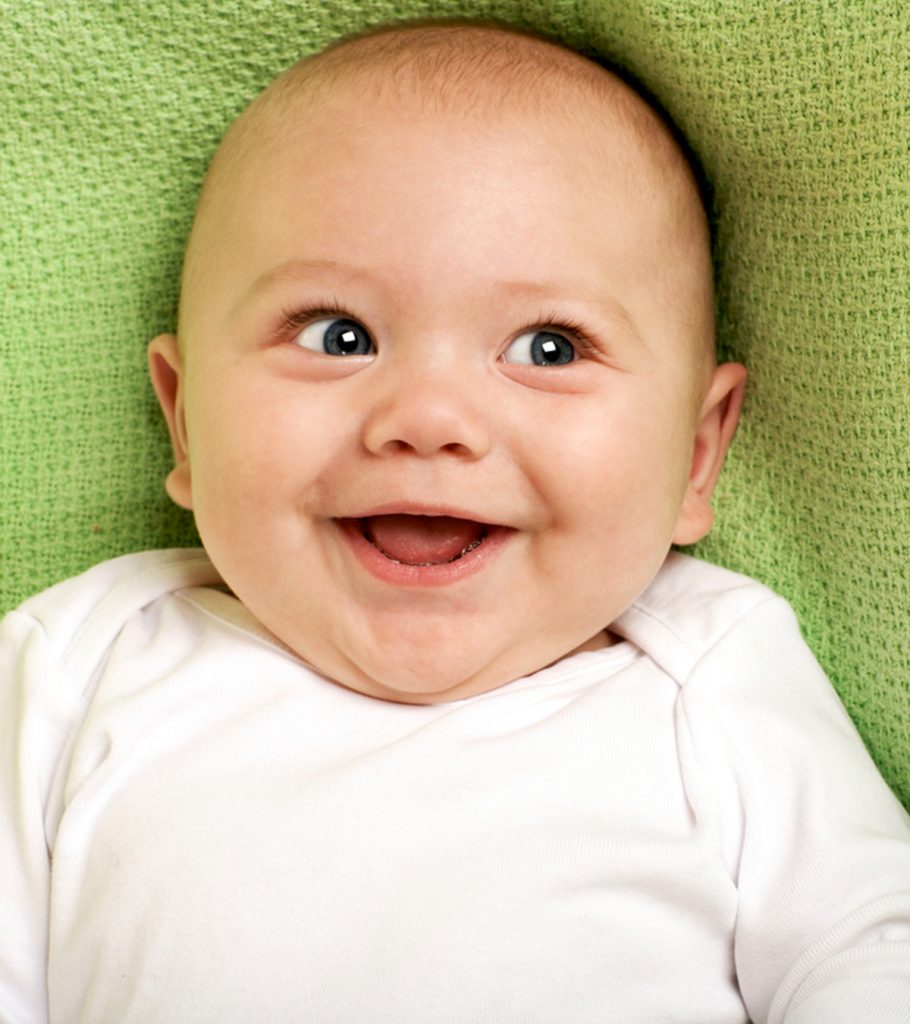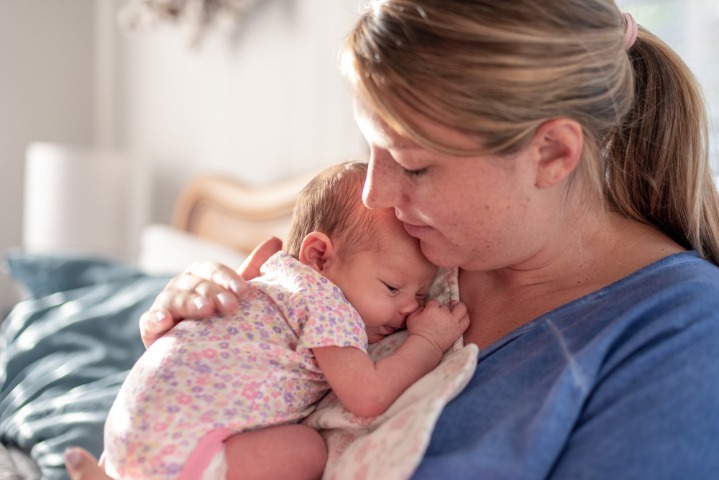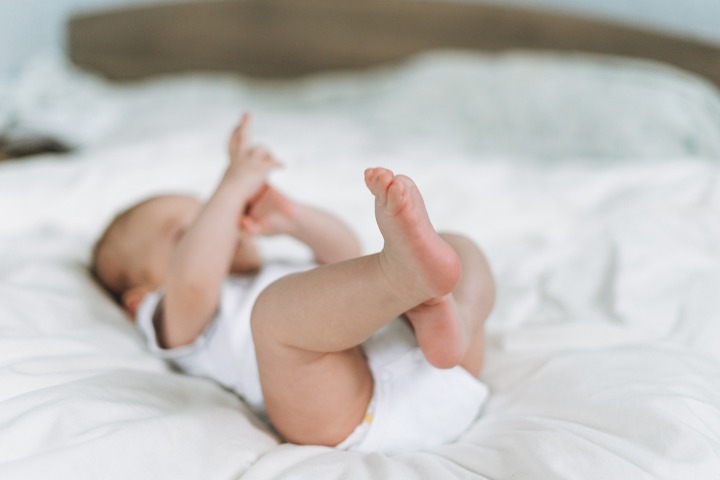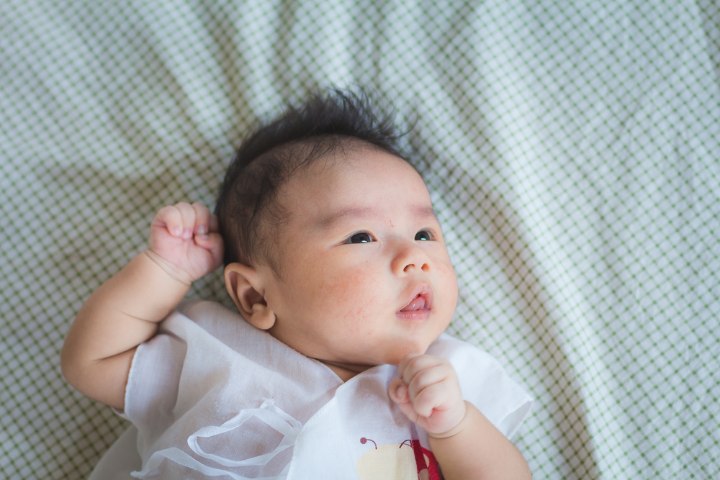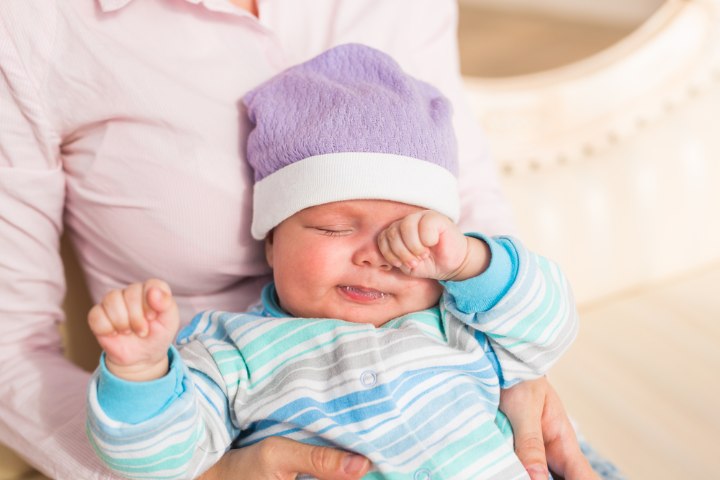Understanding baby body cues and their meaning is essential since babies tend to speak through gestures and body language for some time. This is because verbal communication starts later in life; until then, you need to be aware of their actions and interpret them. Fortunately, this is not a language that needs certification, it is simple, and you need to spend a little of your time.
How about we give you a headstart in baby body language? Read on to know your baby’s gestures and distress calls, so that even if they may not express their thoughts verbally, you can understand and help them.
Why Is It Important To Respond To Baby Cues?
Babies have a little understanding of their surroundings and are dependent on their caretakers. They don’t speak verbally until the age of 12 months (1). But this doesn’t mean they don’t have things to say. They convey vital information regarding their body activities and emotions through their body language.
Initially, you may have trouble interpreting them. However, with a little observation, overtime, these indications become easier to decipher. Here’s why responding to baby cues is an essential part of caretaking and parenting:
- Your response to their cues ensures them that their emotions are acknowledged.
- An affirmative response to your baby’s cues imbibes a sense of trust, thereby creating a strong foundation for your relationship with them.
- An appropriate response to their cues also teaches them to perform the right action when they face the same problem again.
- It also helps them discover several nuances of communication and improve their overall communication skills in the long run.
Various Body Language Cues In Babies
Most babies put out similar signals for their needs. Read on to know what each of these body signs means and your ideal response for them.
1. Arching back
Babies arching their back could indicate satiety, heartburn, coliciXProlonged crying or fussiness in a baby., or gastrointestinal reflux (2). A baby’s stomach sphinctersiXA ring-shaped stomach muscle responsible for relaxing or tightening the stomach passage. are still developing, making acid refluxiXDigestive disease occurring due to stomach acid flowing back to the esophagus. common among them. Babies tend to arch their backs in an attempt to stretch their stomachs and to avoid further discomfort.
If you observe this posture during feeding, pause, and comfort them for a while. You can attempt to distract them and rub their backs for a while. If the discomfort persists, consult a pediatrician.
2. Ear-grabbing
It is usually a reaction to teething or their discovery of the ear. However, ear-grabbing with fever or cold could be due to an ear infection.
Check for other signs, such as a stuffy nose or troubled sleeping, and consult a pediatrician (3). If teethingiXThe process in which a baby’s first teeth develop. is the cause, provide them with teething toys for comfort.
3. Head-banging
A few babies rock their heads in a rhythmic back-and-forth movement, also termed as head-banging. It is a self-soothing technique that is mostly observed before their nap or bedtime. Although this habit wears-out on its own by the age of three years, your baby may hurt their head if they hit a hard surface (4).
Observe the time they bang their head. If it happens close to their nap time, it could just be a self-comforting technique. You can prevent any injuries by padding the cradle walls. If it happens during other times, or your baby continues head-banging after the age of three years, consult a pediatrician.
4. Constant kicking
Happy and content babies kick a lot. These kicks help develop leg muscles and are a prerequisite to rolling. But if your baby is grumpy while kicking their feet, it could be an indication of discomfort. Your baby could be trying to imply a dirty diaper or a bloated stomach.
If your baby is kicking in the air due to a bloated stomach, help them burp out. You can also check the mother’s diet for foods that may trigger gassiness in a breastfeeding infant.
5. Grumpiness
If you find that your baby has become quite unsettled and grumpy after a family gathering or an activity, it could be due to overstimulation. It means that your baby is overwhelmed and requires some quiet time.
Take them somewhere quiet and try rocking them until they calm down. Try to avoid any social contact until they are calm. You may also try to play their favorite music or go out for a walk. Giving them some ‘me time’ could help calm them down.
6. Fist clenching
Babies clench their fists due to a primitive reflex termed as palmar grasp. It usually disappears between five to six months (5). Newborn babies clench their fists as a continuation of their habit portrayed inside the mother’s womb. It is a natural instinct and is also one of the signs that babies may portray when hungry or under stress.
Feed your baby to relieve their hunger and soothe them with a lullaby. If you notice that this habit is accompanied by stiff limbs or torso, or the baby continues to clench fists after the age of six months, contact a pediatrician (6).
7. Baby hiccups
Most babies hiccup a lot during their first year. This is not a cause for concern as it is often a sign of overfeeding or feeding quickly (7).
Hiccups usually subside in five to ten minutes. If hiccups are common after each feed or meal, try changing your breastfeeding position or the solid food served to the baby. Burp your baby after each feed or meal. Improper latching while breastfeeding could also cause hiccups. If hiccups persist, speak to a lactation consultant or certified pediatric dietician.
8. Arm jerks
Some babies startle and jerk their arms on hearing a loud sound or when their sleep is disturbed by a bright light. This involuntary movement is termed as Moro reflex (8). Although this habit fades-out on its own, frequent arm jerks during sleep could interfere with your baby’s sleep cycle and make them tired.
If your baby is awakened by a noise, comfort them, and place them back into a crib. Maintain a quiet and comfortable sleep environment for the baby.
9. Eye-rubbing
One of the hints that babies give when tired is rubbing their eyes. It is their “I am ready to go to bed” cue. You may also see them yawn or notice their eyelids going droopy. Sometimes, eye-rubbing accompanied by red eyes could indicate a foreign particle, such as pollen, in their eye.
If your baby rubs their eyes and you suspect a foreign particle, use a clean and sterile gauze to clean around their eyes. If eye-rubbing persists after sleep or the baby has other symptoms, such as red eyes and fever, consult a pediatrician to check for any infections.
10. Breathing quickly
If your baby’s breathing pattern is faster than usual but still maintains a happy face, it is probably because they can’t contain their excitement. As long as their breathing pattern comes back to a normal rate, there’s nothing to be panicked about (9).
Sometimes, babies tend to breathe faster when they’re startled. During such moments, talk to them and divert their attention. If none of the usual soothing techniques work, speak to a pediatrician.
11. Scrunching the knees
It is another sign of your baby telling you that they are feeling gassy or constipated. Gassiness and constipation tend to be common among infants, and they often bring knees to the abdomen to ease the discomfort.
You could help them with these conditions by letting them burp well after feeding or massaging their tummy in a clockwise direction. Alternatively, if you are lactating, check your meal and eliminate any gas-causing foods. If this habit is accompanied by vomiting, crying, bloody stools, or fever, contact a pediatrician (10).
12. Turning the face away
A baby turning their head away could be upsetting. However, a baby may do so when they are bored or being force-fed. Another reason why babies turn their heads is to check their surroundings. By the age of six months, babies tend to turn their faces a lot to check their surroundings (11). These are all important milestones in a baby’s growth and development.
The best way to react to this is by taking them out for a walk or by starting a new activity. If your baby turns their face while being fed, it usually indicates that their tummy is full (12). Stop feeding since force-feeding could lead to overeating.
Dr. Michelle Mintz, speech-language therapist from Los Angeles, California, says, “One cue that indicates that babies are full and no longer want to be fed is when you offer them the bottle or spoonful of food, and they turn their heads away. Another cue might be them pushing away the bottle, spoon, or whatever you are giving them, with their hands. Thirdly, a verbal cue might be that they make a whining or some sort of noise that indicates a ‘no’.”
13. Sucking fingers
Sucking fingers reminds the baby of breastfeeding or bottle-feeding since their natural sucking reflex helps them latch to the breast or bottle nipple. Therefore, your baby might suck their fingers to indicate that they are hungry.
Try feeding them immediately after they start sucking their fingers. If your baby sucks at fingers even after feeding, it could be a self-soothing technique. You can offer a pacifier in cases where the baby desires to exercise their sucking reflex for self-soothing (13).
14. Baby grimacing, grunting, and bearing down
It is a common sign of a baby pooping. You can help them relax during pooping by rubbing their bellies gently. If your baby cries while pooping, check their poop. They could be constipated (14).
Constipated babies could benefit from exercises, such as cycling of legs, which stimulate the intestines. If the baby is being breastfed, analyzing the mother’s diet could help find the cause. If your baby grimaces before passing bloody stools, consult a pediatrician promptly.
Baby body cues and their meanings may have a lot to do with their requirements–from wanting more milk to having insufficient or disrupted sleep–and your interpretation of their expressions and gestures and responsiveness to cues are crucial. You must pay attention to their body language to understand what they require from you. Don’t worry if you are unable to figure out their cues. Keep observing and soothing them, and you will gradually develop a strong bond and attachment with them.
Key Pointers
- Babies can’t talk but can express themselves through their body language.
- Understanding and responding to baby’s cues helps instill their trust in the caregiver and improve their overall communication skills.
- Baby grimacingiXTwisted expression of face marking pain, disgust, or amusement. , grunting, and bearing down is a common sign of baby pooping, whereas clenching a fist may indicate they are hungry or under stress.
- Arching their back, grabbing ears, banging heads, and constant kicking are a few cues babies use to convey their needs.
Learn how to understand your newborn’s cries and figure out what they’re trying to tell you. Get ready to decode your baby’s language!
